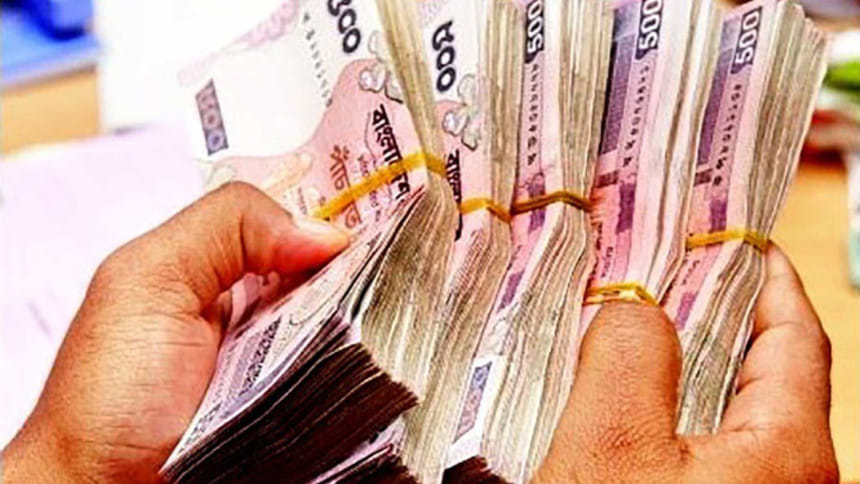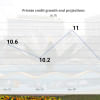Private credit growth hits 4-year high

Private sector credit growth in Bangladesh accelerated to a four-year high of 13.66 per cent last fiscal year from what was in the preceding year.
The propellants were the need to finance rising imports and demand for SME and retail loans as the economy regained its pace in growth from the pandemic's fallout.
The data comes at a time when Bangladesh Bank is aiming to reduce credit to private business.
The regulator not only seeks to contain inflation but also bring back stability in the economy which is facing spiralling current account deficits, pressure on foreign exchange reserves and subsequent volatility in the exchange rates.
As the credit growth has remained high, two economists yesterday suggested that the central bank contain credit growth to curb excess demand to contain inflation which hit a nine-year high in June.
The credit growth, however, remains below the Bangladesh Bank's target of 14.80 per cent for fiscal 2021-22.
In the previous fiscal year, an 8.35 per cent credit growth was attained.
The BB, however, has already taken several initiatives to contain money supply to the market by reducing its credit growth to the private sector. It set a credit growth of 14.1 per cent for this fiscal year.
In addition, the central bank also hiked its policy rate twice within a month for the first time since its introduction in 2003. The BB raised it by 25 basis points on May 29 this year and by 50 basis points yesterday.
The policy rate is what the central bank charges when commercial banks take loans from it for a short term. An increase in the rate makes loans more costly.
Ahsan H Mansur, executive director of the Policy Research Institute of Bangladesh, said the country achieved the latest credit growth thanks to vibrancy in economic activities following the business slowdown stemming from the pandemic.
But the overall credit growth in both the private and government sectors should be reduced given that inflation is soaring, he said.
Inflation in Bangladesh hit a nine-year high of 7.56 per cent in June thanks to the spiralling prices of food products in the country.
Mansur said the central bank should withdraw the interest rate of 9 per cent on loans.
If the central bank withdraws the cap, the interest rate on financing for imports will also increase, he said.
The private sector will be discouraged from taking take loans at a higher cost and reduce imports and thereby associated payments, he explained.
Between July and May of the last fiscal year of 2021-22, import payments went up by 39 per cent year-on-year to $75.40 billion.
However, the inflow of remittance fell 15 per cent year-on-year to $21.03 billion over the whole of the fiscal year.
The foreign exchange reserve stood at $39.49 billion yesterday whereas it was $46.15 billion in December last year.
Reducing the credit growth will also help bring back stability in the foreign exchange market, Mansur said.
Fahmida Khatun, executive director of the Centre for Policy Dialogue, echoed Mansur.
She said the central bank should withdraw the interest rate lending cap in order to curbinflation.
She said rising import payments should be curtailed to reduce private sector credit growth.
Abul Kashem Md Shirin, managing director of Dutch Bangla Bank, said the upward trend of import financing and SME and retail loans were mainly responsible for the increase in credit growth.
He, however, said big businesses have not taken term loans to that much of an extent to set up industrial units in recent months.
But they are taking working capital to run their existing businesses, he said.

 For all latest news, follow The Daily Star's Google News channel.
For all latest news, follow The Daily Star's Google News channel. 








Comments